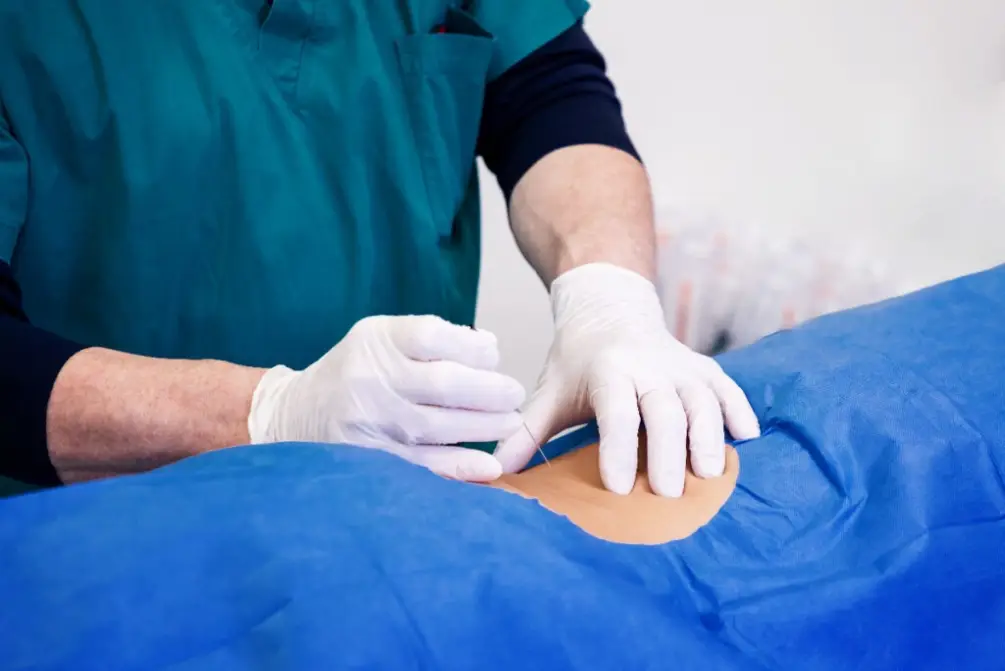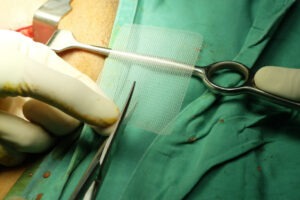
As with any procedure, there are dangers even if it might offer relief to patients who have hernias. Before selecting whether to have hernia surgery, it is crucial to understand the advantages and disadvantages of the process. In this post, we’ll examine the factors you should consider while choosing a course of action for your health. So let’s delve into and examine the advantages and potential disadvantages of having surgery in more detail.

Types of Hernia
It’s critical to comprehend the many forms of hernia surgery before examining the hazards and advantages of the procedure.
Open Repair: A cut incision is made in the skin over the hernia, and the hernia is repaired through the incision.
Laparoscopic Repair: this includes repairing the hernia via a thin tube equipped with a camera through a series of tiny incisions.
Both surgical procedures have benefits and drawbacks. For particularly big hernias or when a patient’s health history poses risks associated with laparoscopic surgery, open surgery may be the best option. Your surgical procedure will depend on the kind and location of your hernia.
To apply for free, call (877) 735-0016
Benefits of Hernia Surgery
Hernia surgery may seem frightening, but there are several benefits to the procedure. The major ones are:
Pain and Discomfort Relief
Pain and discomfort are two of a hernia’s primary symptoms. If alternative non-surgical pain relief options fail, they can be relieved by surgery.
Better Quality of Life
The majority of patients report an improvement in quality of life after surgery. This may include improved physical function and reduced discomfort, allowing you to go about your daily business as usual.
Lower Possibility of Hernia Complications
The risk of hernia-related problems can be decreased with surgery. Bowel blockage is one of them; in extreme circumstances, it can be fatal.
Lesser Risk of Tissue Strangulation
When a piece of the herniated tissue becomes stuck, it dies from lack of oxygen. By correcting the hernia and preventing the tissue from being trapped again, surgery can greatly lessen the risk of strangulation.
Possibilities for Minimally Invasive Surgery
Repairing a hernia using laparoscopic surgery entails making a few small incisions and inserting a thin tube fitted with a camera and surgical tools. Compared to open surgery, this method can lead to less discomfort, shorter hospital stays, and quicker recovery periods. Depending on where the hernia located and what kind it is, this method can be used effectively.
High Rates of Success
When conducted by skilled surgeons utilizing cutting-edge methods, hernia surgery has a high rate of success. Laparoscopic operations are one example of minimally invasive surgery made possible by improvements in medical technology and surgical techniques.
Brief Hospital Stay and Rapid Recovery
Patients may benefit from a brief hospital stay and speedy recovery times following surgery with extensive post-operative care and follow-up sessions.
Risks Associated With Hernia Surgery
There are risks with any surgical treatment. These may consist of:
Infection
There is a chance of getting infected after surgery, like with any procedure. This could happen close to the incision or farther into the body. Medication can be used to treat infections if they do arise.
Bleeding
During and after the procedure, there is a chance of bleeding. From mild to severe, this is possible. Seek quick medical assistance if you have severe bleeding after surgery.
Nearby Organs/Tissue Damage
Accidental injury of neighboring structures, such as blood arteries, nerves, or organs, is always a possibility during surgery.
Intestine Blockage
Following hernia surgery, the intestines may get blocked, which may result in nausea, vomiting, and abdominal pain. These instances are quite uncommon.
Nerve Injury
Surgery occasionally might result in nerve injury. This may result in weakness, tingling, or numbness in the region that is afflicted.
Anesthesia-Related Side Effects
There is a chance that the anesthesia used during the procedure will cause an unpleasant reaction.
Factors That Increase the Risk of Complications
Several things might put you at a higher risk for problems during hernia surgery. Among these are:
- Age: Older Patients may be more susceptible to problems
- Obesity: Carrying too much weight might complicate surgery and raise your chance of complications.
- Smoking: Smoking might speed up the healing process and increase your risk of problems.
- Chronic illness: Some long-term conditions, including diabetes, might raise your risk of problems.
- Prior surgery: If you’ve had abdominal surgery in the past, your risk of problems following hernia surgery may be increased.
- Form of hernia: Inguinal hernias are one form of hernia that may increase the risk of surgical complications.
Surgery type: The risk of complications can also be influenced by the type of surgery that is done. For instance, compared to open surgery, laparoscopic surgery may carry a decreased risk of complications.
Complete a Free Application form now
How to Minimize the Risks Associated With Hernia Surgery
Here are some things you may do to lessen the risk of complications during hernia surgery:
Eat and Drink Nothing: Before surgery, your surgeon will probably give you specific instructions on what to avoid eating and drinking. This lowers the chance of problems by ensuring that your stomach is empty during the surgery.
Medical Examination and Assessment: To assess your general health and determine if you are a good candidate for surgery, your surgeon may conduct several tests (such as blood tests or imaging scans).
Medication Management: Your doctor will advise you on which drugs you can keep taking after surgery and which ones you should stop taking before surgery.
Preoperative Fasting and Bowel Readiness: your surgeon may instruct you to consume no solid food for many hours or to take medicine to empty your bowels thoroughly.
Options for Anesthesia: Your surgeon will go through the various kinds of anesthesia that are available and assist you in deciding which is best for you.
Alternative Types of Treatment
Surgery might not always be the best course of action for treating a hernia. You might want to think about the other treatment types listed below:
- Making lifestyle changes
- Employing supportive devices or wears, such as a truss or hernia belt.
- Adopting a nonsurgical medical treatment option.
Do You Need a Settlement Loan for Hernia Mesh Lawsuit? Contact High Rise Financial Today!
At High Rise Financial, we offer non-recourse legal funding to claimants with hernia mesh lawsuit. Contact us today at (866)-407-6404 to schedule a one-on-one consultation. Our dependable team will be happy to speak with you and discuss your available options.
Call or text (877) 735-0016 or fill out our form to apply today for free.



